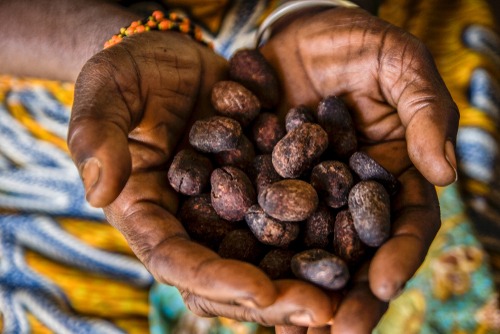Women's Role in African Food Security: Diversity, Inclusion, and Equality
Delve into the pivotal role of African women in food production and security. Explore their challenges, from resource access disparities to gender recognition gaps. Learn how empowering initiatives like legal reforms, education, and credit access can drive equitable and sustainable food environments across Africa.
Kay Codjoe
3/13/20242 min read


Throughout Africa, women’s roles play an integral part in food production and achieving food security. Across the continent, African women are primary food producers and caregivers of the family, working in subsistence and commercial farming, livestock rearing, marketing, trading and storage. Despite this, their work is often overlooked, and their contributions to food security remain undervalued and unrecognised.
There are a variety of factors contributing to women’s inequality and lack of recognition when it comes to food security in Africa. Gender disparities in land ownership and access, unequal access to agricultural production resources and education, poor recognition of the importance of their work, and limited access to financial resources and infrastructure support, all contribute to the gender gap in agricultural production and food security across the continent.
Furthermore, women also experience long working hours, have overall responsibility for collecting water and firewood, and bear a high burden of reproductive and domestic work. This discourages their participation in economic activities and limits their access to resources and markets, exacerbating the existing gender imbalances in agriculture and food security.
In spite of these challenges, there is an increasing recognition of the importance of supporting and empowering women’s roles in achieving food security in Africa. There is a greater focus on long-term and innovative initiatives, such as legal reforms, education and training, access to credit, and gender-sensitive agricultural technologies, to promote women’s access, control and ownership of productive resources, and improve their access to credit and markets.
In addition, public policy can provide direct support for women’s empowerment in the agricultural sector including equal investment and access to resources, fair wages and labour protection. Furthermore, education and training programmes targeting women, as well as initiatives aimed at improving the social and economic status of women, need to be developed.
Overall, in order for Africa to achieve food security, the essential roles that women play need to be acknowledged, supported and maintained. African countries must strive to create gender-sensitive environments, with equal access to resources and support, in order to promote the economic security of women and ensure an equitable, sustainable and food secure environment for all.
Join us as we explore the Sheallo difference and discover how you can be part of a more sustainable Shea industry. Together, we can make a positive impact on communities, the environment, and the future of Shea production. Let's work towards a brighter and more ethical tomorrow with Sheallo.
Subscribe
Stay connected with Sheallo for the latest updates, industry insights, and exclusive offers! Subscribe now to join our community committed to sustainable sourcing and innovative agritech solutions.

Address: 9th Avenue Square, Abdul Diouf Street, Ridge 00233, Greater Accra Region, Ghana.
T: +233 20 615 4273 | E: info@sheallo.com | www.sheallo.com
